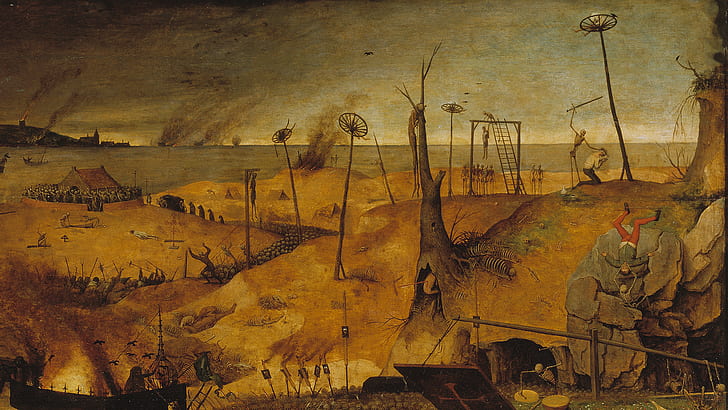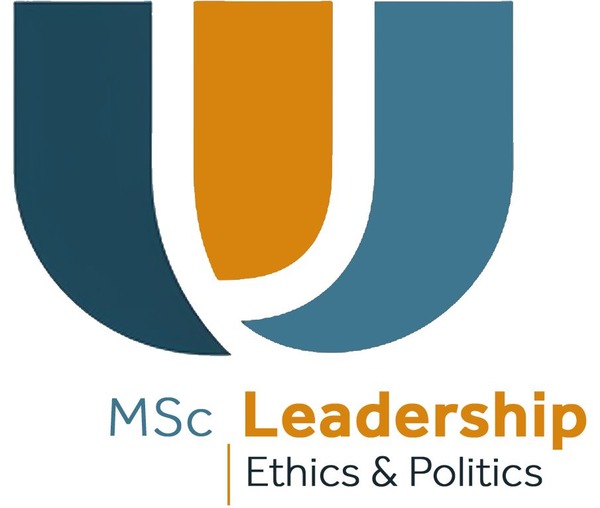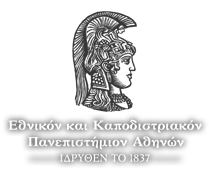Ethical Leadership (LEPC1)
Evangelos D. Protopapadakis
Syllabus
Course Syllabus
I. Introduction to Ethics
II. Major Ethical Traditions: Virtue Ethics
III. Major Ethical Traditions: Deontological Ethics
IV. Major Ethical Traditions: Consequentialist Ethics
V. Virtue, Duty, Utility: Characteristics of a Leader
VI. Virtues and Leadership
VII. Duty and Leadership
VIII. Utility and Leadership
IX. Ethics of War and Leadership
X. Business Ethics and Leadership
XI. Social Ethics and Leadership
XII. Leadership, Emerging Technologies, and Ethics
XIII. Case Studies
Course Objectives/Goals
• Understanding the basic principles of ethical leadership and the role of virtues in leadership.
• Analyzing classical virtues of ethical philosophy and their relation to leadership.
• Developing skills to apply virtues in everyday leadership practice.
• Analyzing cases to evaluate ethical dilemmas in leadership and develop skills to address them.
• Understanding the importance of the leader's example and maintaining high ethical standards.
• Developing a framework to assess and enhance ethical culture in domestic or international organizations.
• Applying ethical leadership virtues in various environments and situations.
Instructional Methods
Assessment Methods
- 20%: Participation
- 20%: Oral presentation
- 60%: Written assignment
Prerequisites/Prior Knowledge
This module has no prerequisites in the curriculum or prior knowledge requirements.
Instructors

Evangelos D. Protopapadakis is Professor of Applied Ethics (National and Kapodistrian University of Athens); Director of the NKUA Applied Philosophy Research Laboratory; Member of the Hellenic National Commission for Bioethics and Technoethics; Head of the Greek Unit of the International Chair in Bioethics (WMA Cooperation Center), Director of the MA Program Animal Welfare, Ethics and the Law, Member of the Pan-Orthodox Committee of Bioethics of the Ecumenical Patriarchate in Constantinople, Member of the Greek National Authority of Assisted Reproduction, and Member of the Bioethics Committee of the Hellenic Pasteur Institute. He has published 4 monographs in Greek and 2 in English as the single author, as well as 12 edited volumes as the editor or the co-editor: 5 in English, 1 in Serbian and 6 in Greek. He has published more than 70 papers in domestic or international scientific journals and volumes. He is a member of several domestic and international philosophical societies; he is also the Editor-in-Chief of Conatus – Journal of Philosophy.
E-mail: eprotopa@philosophy.uoa.gr ♦ ORCID iD: 0000-0001-7502-3117
Textbooks
Conatus - Journal of Philosophy 8, no. 2, Special Issue: War Ethics. Guest Editor: Jovan Babić.
You may either download, or view on-line the full issue.
Bibliography
- Audi, Robert. Practical Reasoning and Ethical Decision. New York: Routledge, 2005
- Burns, J. Leadership. New York: HarperCollins, 1978.
- Clausewitz, Carl von. On War. Translated by Michael Eliot Howard and Peter Paret. Princeton, NJ: Princeton University Press, 1989.
- Darcy, K. T. “Ethical Leadership: The Past, Present and Future.” International Journal of Disclosure & Governance 7, no. 3 (2010): 198-212. doi: https://doi.org/10.1057/jdg.2010.12.
- Duffield, J. F., and R. H. McCuen. “Ethical Maturing and Successful Leadership.” Journal of Professional Issues in Engineering Education & Practice, 126, no. 2 (2000), 79. doi: https://doi.org/10.1061/(ASCE)1052-3928(2000)126:2(79).
- Fluker, Walter E. Ethical Leadership: The Quest for Character, Civility, and Community. Minneapolis, MN: Fortress Press, 2009.
- Gini, A. Ethics: The Heart of Leadership. Westport, CT: Greenwood, 1998.
- Hesselbein F., and M. Goldsmith, eds. The Leader of the Future: Visions, Strategies, and the New Era. San Francisco, CA: Leader to Leader Institute, 2006.
- Hickman, G. R. Transactional and Transforming Leadership Leading Organizations Perspectives for a New Era. Thousand Oaks: Sage, 1998.
- Kaptein, M., L. Huberts, S. Avelino, and K. Lasthuizen. “Demonstrating Ethical Leadership by Measuring Ethics.” Public Integrity 7, no. 4 (2005): 299-311. doi: https://doi.org/10.1080/10999922.2005.11051286.
- Malphurs, A. Values-driven Leadership: Discovering and Developing Your Core Values for Ministry. Grand Rapids, MI: Baker Books, 2004.
- Moreno, C. M. “An Approach to Ethical Communication from the Point of View of Management Responsibilities.” Ramon Llull Journal of Applied Ethics 1, no. 1 (2010): 97-108.
- Price, Terry. Understanding Ethical Failures in Leadership. Cambridge: Cambridge University Press, 2005.
- Protopapadakis, Evangelos D. Creating Unique Copies: Human Reproductive Cloning, Uniqueness, and Dignity. Berlin: Logos Verlag, 2023. doi: https://doi.org/10.30819/5698.
- Sandel, M. J. Justice: What’s the Right Thing to Do? New York: Farra, Straus and Giroux, 2009.
- Savulescu, Julian, and Evangelos D. Protopapadakis. “'Ethical Minefields' and the Voice of Common Sense: A Discussion with Julian Savulescu." Conatus - Journal of Philosophy 4, no. 1 (2019): 125–133. doi: https://doi.org/10.12681/cjp.19712.
- Skovira, R., and K. Harman. “An Ethical Ecology of a Corporate Leader: Modeling the Ethical Frame of Corporate Leadership.” Interdisciplinary Journal of Information, Knowledge & Management 1 (2006): 159-170.
- Thompson, K., E. Thach, and M. Morelli. “Implementing Ethical Leadership: Current Challenges and Solutions.” Insights to a Changing World Journal 4 (2010): 107- 130.
- History of the Peloponnesian War. Edited by M. I. Finley. Translated by Rex Warner. London: Penguin Classics, 1972.
- Tzu, Sun. The Art of War. New York: Peter Pauper Press, 2022.
- Yukl, G. A. Leadership in Organizations. Upper Saddle River, NJ: Pearson/Prentice Hall, 2006.
I. Introduction to Ethics
II. Major Ethical Traditions: Virtue Ethics
III. Major Ethical Traditions: Deontological Ethics
IV. Major Ethical Traditions: Consequentialist Ethics
V. Virtue, Duty, Utility: Characteristics of a Leader
VI. Virtues and Leadership
VII. Duty and Leadership
VIII. Utility and Leadership
IX. Ethics of War and Leadership
X. Business Ethics and Leadership
XI. Social Ethics and Leadership
XII. Leadership, Emerging Technologies, and Ethics
XIII. Case Studies
• Understanding the basic principles of ethical leadership and the role of virtues in leadership.
• Analyzing classical virtues of ethical philosophy and their relation to leadership.
• Developing skills to apply virtues in everyday leadership practice.
• Analyzing cases to evaluate ethical dilemmas in leadership and develop skills to address them.
• Understanding the importance of the leader's example and maintaining high ethical standards.
• Developing a framework to assess and enhance ethical culture in domestic or international organizations.
• Applying ethical leadership virtues in various environments and situations.
- 20%: Participation
- 20%: Oral presentation
- 60%: Written assignment
This module has no prerequisites in the curriculum or prior knowledge requirements.

Evangelos D. Protopapadakis is Professor of Applied Ethics (National and Kapodistrian University of Athens); Director of the NKUA Applied Philosophy Research Laboratory; Member of the Hellenic National Commission for Bioethics and Technoethics; Head of the Greek Unit of the International Chair in Bioethics (WMA Cooperation Center), Director of the MA Program Animal Welfare, Ethics and the Law, Member of the Pan-Orthodox Committee of Bioethics of the Ecumenical Patriarchate in Constantinople, Member of the Greek National Authority of Assisted Reproduction, and Member of the Bioethics Committee of the Hellenic Pasteur Institute. He has published 4 monographs in Greek and 2 in English as the single author, as well as 12 edited volumes as the editor or the co-editor: 5 in English, 1 in Serbian and 6 in Greek. He has published more than 70 papers in domestic or international scientific journals and volumes. He is a member of several domestic and international philosophical societies; he is also the Editor-in-Chief of Conatus – Journal of Philosophy.
E-mail: eprotopa@philosophy.uoa.gr ♦ ORCID iD: 0000-0001-7502-3117
Conatus - Journal of Philosophy 8, no. 2, Special Issue: War Ethics. Guest Editor: Jovan Babić.
You may either download, or view on-line the full issue.
- Audi, Robert. Practical Reasoning and Ethical Decision. New York: Routledge, 2005
- Burns, J. Leadership. New York: HarperCollins, 1978.
- Clausewitz, Carl von. On War. Translated by Michael Eliot Howard and Peter Paret. Princeton, NJ: Princeton University Press, 1989.
- Darcy, K. T. “Ethical Leadership: The Past, Present and Future.” International Journal of Disclosure & Governance 7, no. 3 (2010): 198-212. doi: https://doi.org/10.1057/jdg.2010.12.
- Duffield, J. F., and R. H. McCuen. “Ethical Maturing and Successful Leadership.” Journal of Professional Issues in Engineering Education & Practice, 126, no. 2 (2000), 79. doi: https://doi.org/10.1061/(ASCE)1052-3928(2000)126:2(79).
- Fluker, Walter E. Ethical Leadership: The Quest for Character, Civility, and Community. Minneapolis, MN: Fortress Press, 2009.
- Gini, A. Ethics: The Heart of Leadership. Westport, CT: Greenwood, 1998.
- Hesselbein F., and M. Goldsmith, eds. The Leader of the Future: Visions, Strategies, and the New Era. San Francisco, CA: Leader to Leader Institute, 2006.
- Hickman, G. R. Transactional and Transforming Leadership Leading Organizations Perspectives for a New Era. Thousand Oaks: Sage, 1998.
- Kaptein, M., L. Huberts, S. Avelino, and K. Lasthuizen. “Demonstrating Ethical Leadership by Measuring Ethics.” Public Integrity 7, no. 4 (2005): 299-311. doi: https://doi.org/10.1080/10999922.2005.11051286.
- Malphurs, A. Values-driven Leadership: Discovering and Developing Your Core Values for Ministry. Grand Rapids, MI: Baker Books, 2004.
- Moreno, C. M. “An Approach to Ethical Communication from the Point of View of Management Responsibilities.” Ramon Llull Journal of Applied Ethics 1, no. 1 (2010): 97-108.
- Price, Terry. Understanding Ethical Failures in Leadership. Cambridge: Cambridge University Press, 2005.
- Protopapadakis, Evangelos D. Creating Unique Copies: Human Reproductive Cloning, Uniqueness, and Dignity. Berlin: Logos Verlag, 2023. doi: https://doi.org/10.30819/5698.
- Sandel, M. J. Justice: What’s the Right Thing to Do? New York: Farra, Straus and Giroux, 2009.
- Savulescu, Julian, and Evangelos D. Protopapadakis. “'Ethical Minefields' and the Voice of Common Sense: A Discussion with Julian Savulescu." Conatus - Journal of Philosophy 4, no. 1 (2019): 125–133. doi: https://doi.org/10.12681/cjp.19712.
- Skovira, R., and K. Harman. “An Ethical Ecology of a Corporate Leader: Modeling the Ethical Frame of Corporate Leadership.” Interdisciplinary Journal of Information, Knowledge & Management 1 (2006): 159-170.
- Thompson, K., E. Thach, and M. Morelli. “Implementing Ethical Leadership: Current Challenges and Solutions.” Insights to a Changing World Journal 4 (2010): 107- 130.
- History of the Peloponnesian War. Edited by M. I. Finley. Translated by Rex Warner. London: Penguin Classics, 1972.
- Tzu, Sun. The Art of War. New York: Peter Pauper Press, 2022.
- Yukl, G. A. Leadership in Organizations. Upper Saddle River, NJ: Pearson/Prentice Hall, 2006.

Unit overview
In the introductory unit to ethics, we embark on a journey to explore the fundamental principles that underpin moral reasoning and decision-making. This unit serves as a gateway to understanding the complex landscape of ethical thought and practice. Through engaging discussions and critical analysis, we delve into the significance of ethics in various contexts, from personal dilemmas to global issues. We examine key philosophical theories, such as consequentialism, deontology, and virtue ethics, unpacking their implications for ethical behavior. Additionally, we investigate the role of culture, religion, and societal norms in shaping ethical perspectives. By navigating case studies and real-world scenarios, students develop the skills to identify ethical challenges and formulate ethical responses. Ultimately, this unit aims to equip learners with a foundational understanding of ethics, empowering them to navigate ethical complexities with insight, integrity, and compassion in both personal and professional realms.
Keywords
ethics; morality; good; evil; ethical stance; consequentialism; deontology; virtue ethics; metaethics; applied ethics; theoretical ethics; normative ethics
Required readings
- Driver, Julia. "Moral Theory." The Stanford Encyclopedia of Philosophy (Fall 2022 Edition). Edited by Edward N. Zalta and Uri Nodelman. https://plato.stanford.edu/archives/fall2022/entries/moral-theory/.
Complementary readings
- Parry, Richard and Harald Thorsrud. "Ancient Ethical Theory." The Stanford Encyclopedia of Philosophy (Fall 2021 Edition). Edited by Edward N. Zalta. https://plato.stanford.edu/archives/fall2021/entries/ethics-ancient/.
- Savulescu, Julian, and Evangelos D. Protopapadakis. “'Ethical Minefields' and the Voice of Common Sense: A Discussion with Julian Savulescu." Conatus - Journal of Philosophy 4, no. 1 (2019): 125–133. doi: https://doi.org/10.12681/cjp.19712.


Unit overview
In the unit on major moral traditions, we immerse ourselves in the profound philosophy of virtue ethics, tracing its origins from ancient Greek thought to its contemporary relevance. Delving into the works of Aristotle and other notable thinkers, we explore the central tenets of virtue ethics, emphasizing the cultivation of character and the pursuit of human flourishing. Through critical analysis and reflective inquiry, students gain a deep understanding of virtues such as courage, wisdom, temperance, and justice, and their role in guiding ethical behavior. By comparing and contrasting virtue ethics with other moral traditions, such as consequentialism and deontology, learners appreciate the unique emphasis on character development and the good life. Engaging with diverse perspectives and real-world applications, this unit fosters a nuanced understanding of virtue ethics as a timeless and relevant framework for ethical decision-making and personal development. Through scholarly inquiry and introspection, students are empowered to integrate virtue ethics into their own lives and contribute to a more just and flourishing society.


Unit overview
In the unit dedicated to deontological ethics within the broader exploration of major ethical traditions, we embark on a rigorous examination of moral duty and the principles that govern ethical decision-making. Rooted in the works of Immanuel Kant and other influential philosophers, we delve into the foundational concepts of deontological ethics, emphasizing the inherent value of moral rules and obligations. Through careful analysis of Kant's categorical imperative and its variants, students gain insight into the universalizability and autonomy inherent in moral reasoning. Exploring key principles such as the primacy of moral law and the dignity of persons, learners grapple with the complexities of applying deontological principles to contemporary ethical dilemmas. By engaging with historical texts, ethical case studies, and ethical theories, students develop critical thinking skills and ethical reasoning abilities essential for navigating moral challenges with integrity and clarity. This unit serves as a cornerstone for understanding deontological ethics as a distinct and influential moral tradition, inviting students to reflect deeply on the nature of moral obligation and the principles that guide ethical conduct in diverse contexts.


Unit overview
In the unit "Ethical Leadership: Case Studies," we immerse ourselves in a comprehensive exploration of ethical leadership through the lens of real-world scenarios and case studies. This unit provides a nuanced understanding of the challenges and complexities leaders face in navigating ethical dilemmas across diverse contexts and industries. Through in-depth analysis and discussion of notable ethical leadership cases, students gain insight into the principles, values, and decision-making processes that define exemplary leadership. We examine how leaders uphold integrity, accountability, and transparency in challenging situations, inspiring trust and fostering ethical cultures within their organizations. Moreover, this unit delves into the role of ethical leadership in promoting social responsibility, stakeholder engagement, and sustainable business practices. By engaging with diverse perspectives, ethical frameworks, and practical solutions, students develop the critical thinking skills and ethical reasoning abilities necessary to lead with integrity and make principled decisions in their own leadership roles. Through reflection, dialogue, and collaborative learning, students emerge from this unit equipped to confront ethical challenges with confidence and compassion, driving positive change in their organizations and communities.
Calendar
Announcements
- - There are no announcements -
















